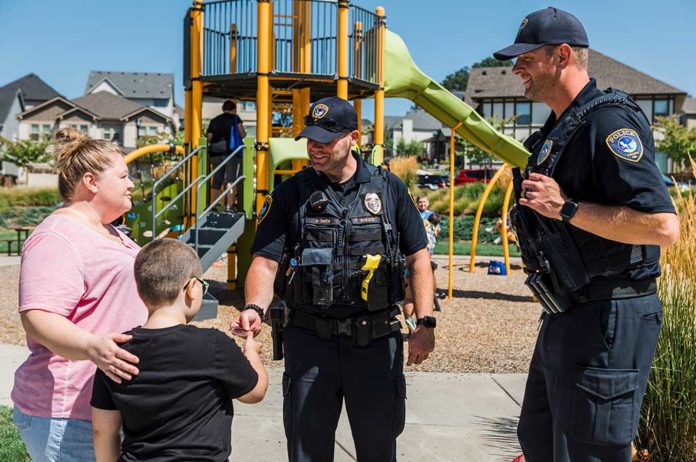
The fate of a public safety levy planned for the May ballot is unclear after a second poll of Tigard voters again showed low support for a property tax increase that would fund additional police officers and training, leading the City Council to consider other options – including a utility fee – to raise the money.
In the most recent survey, conducted in early December, some 300 Tigard voters were asked how likely they would be to support a levy at two different levels: 33 cents per $1,000 of assessed property value or 29 cents per $1,000 of assessed value. In both cases, likely support was lower than 50 percent, even after respondents received more information about how the levy funds would be used.
“My reading of these is that it’s not about cost sensitivity, at least not at the rates we’re talking about – it’s whether or not people want to vote for a tax measure,” John Horvick of DHM Research, the firm that conducted the survey, told the City Council during a Dec. 17 workshop.
Support for the tax is “below the level I would expect levies to pass this many months before an election,” he added.
The levy would pay for 10 new sworn officers, including eight patrol officers and two with special training for working with the city’s homeless population, de-escalation training for all sworn officers and some level of additional support staff.
The Tigard Police Department has 85 full-time employees; 69 of those are sworn officers, according to a city staff report. Adding the new patrol officers would increase staffing levels by one officer per shift for a total of four to five officers per shift. Tigard Police Chief Kathy McAlpine recently told the council that in October nearly half of shifts were staffed at minimum levels of three to four officers.
An initial survey done in October found that support for a levy rate of 46 cents per $1,000 of assessed property value was “low and soft,” prompting the council to request a new survey at the reduced levy rates.
In reaction to the latest poll results, Mayor Jason Snider suggested the council “refocus on solving the problem” of police funding, saying the levy is “just one potential solution.”
One alternative to putting the issue to voters, he said, is a public safety utility fee, adding that other communities have taken similar measures.
Snider cited a “big information gap and said that most residents overestimate current police staffing levels, so they don’t realize that additional public safety funding is needed, adding, “We know that when we talk to people they’re supportive of it, if we spend a lot of time explaining it.”
But, he said, spending 15 to 20 minutes to sway individual voters is impractical.
“When we’re talking about ensuring the safety of our community – which, I think, at the core, is our collective, most important responsibility – having that riding on the votes of people who don’t have enough time to figure out what the details are around the way their community is kept being safe, I would ask all of you to reconsider whether we’re headed on the right track or whether we need to refocus and pursue a different option.”
Councilor Liz Newton agreed with that approach.
“I think we need to have a conversation about this issue and how we solve it,” she said.
Councilor Tom Anderson and Council President John Goodhouse expressed a desire to push forward with putting the levy on the May ballot, while also weighing alternative options if necessary. Goodhouse was concerned that, after so much public discussion about a levy, taking it out of voters’ hands would be perceived negatively.
“I don’t see how you save face doing that,” he said.
Snider countered, saying the council needs “to be able to respond and pivot to new information” gathered through the surveys.
“The problem is not passing a local option levy,” he said. “The problem we’re trying to solve is adequate staffing for the police department that adds the resources that we’ve defined we need through the local option levy process. So, any focus on alternatives should be to try to fund that package. I think we should be asking for any and all possible means of doing so that are legal.”
In addition to a utility fee as a funding source, he mentioned a payroll tax or a sales tax as options.
The issue is slated for further discussion during the council’s Jan. 7 meeting.





















